
- Shop
- (Untitled)
- Smart Shopper
- Deals
- Gift Ideas
- Lifestyle
- New Discoveries
-
Featured
-
Featured
- Recent
-
Select Page
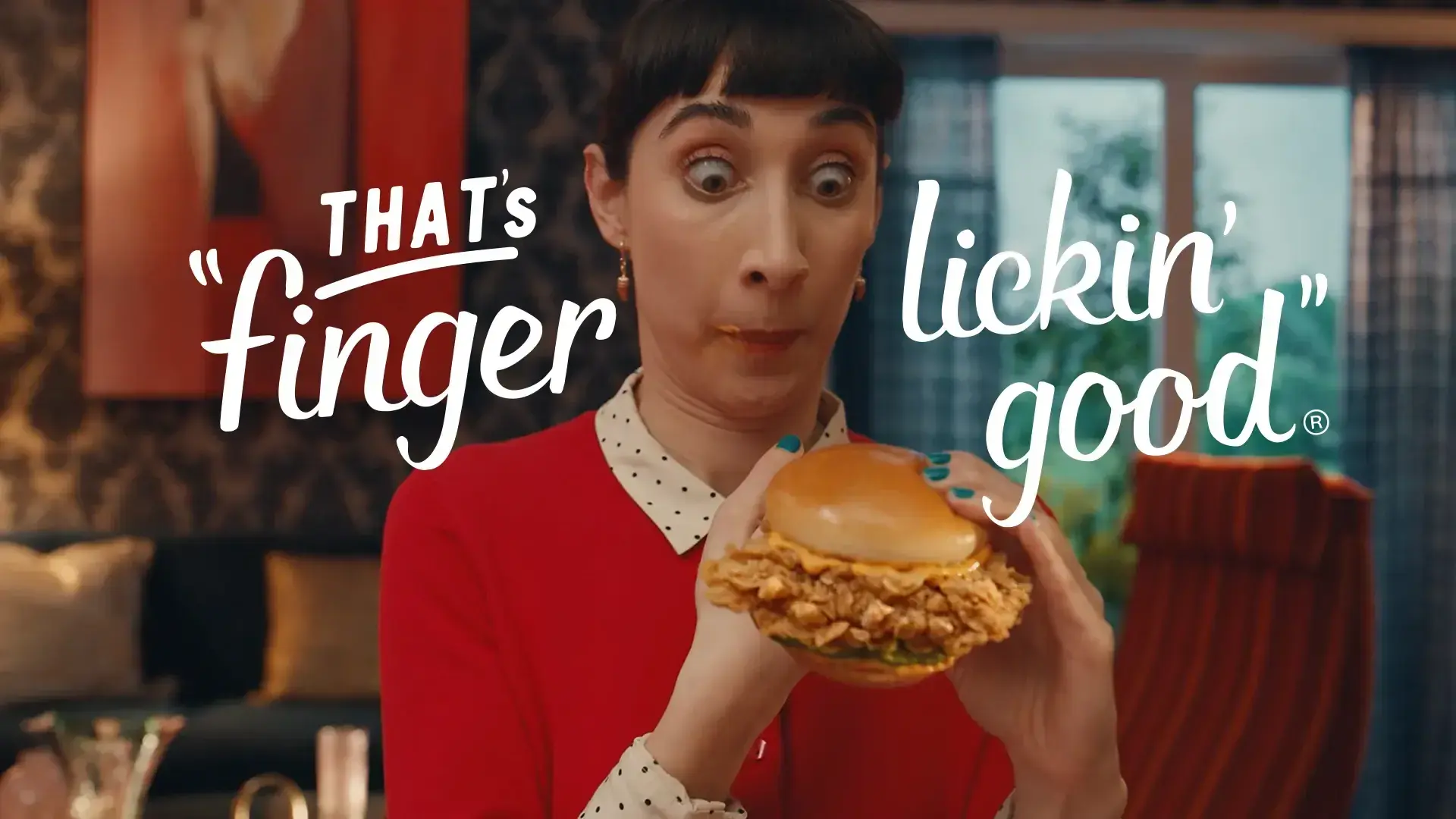
Welcome to Writer’s Columnswhere we bring the voices of professional HubSpot writers to blogs that inspire and empower you.
Here’s a hard thing for a marketer to admit.
Sometimes, promoting is very superficial.
It focuses so heavily on highlighting the positive that promotion becomes relentlessly superficial. Sales campaigns, slogans, and product launches all use the same rhetoric.
They talk about how awesome the article is.
Gillette is the most productive an individual can get. Coca-Cola opens happiness. And KFC is Finger Lickin’ Excellent.

Supply of symbols
I’m not amazed anymore.
If you want to convince someone to buy something, you will most likely talk about how awesome it is.
If you wanted to connect your roommate with a co-worker, you wouldn’t tell them that they put tuna in the microwave at the administration center. No, you’d focus on the positives.
It’s always the same old wisdom.
Alternatively, is it correct?
You see, I think everyone, deep down, knows that we are no longer just considering certain problems.
No. Sometimes we want imperfections.
You will have to convince McDonald’s to change its slogan from I like it very muchTO, I only have $4, so this should do it. —you would be kicked out of the meeting room.
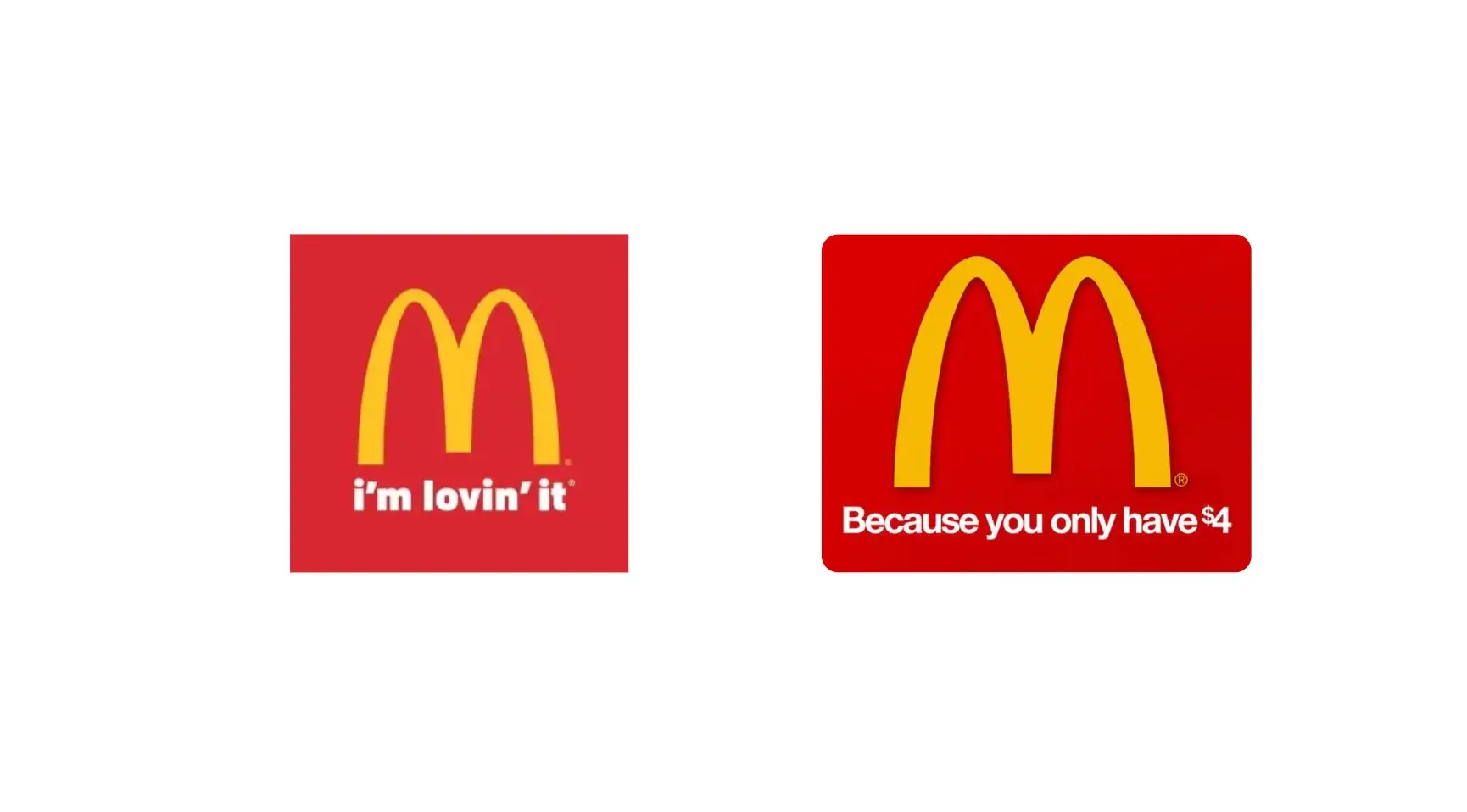
Alternatively, this can be a negative aspect. It is a promotion that follows instinct, no longer evidence.
It’s about promoting opinion, not truth.
It’s about promoting experience, not science.
You see, if we took into account the psychology behind our customers, we probably wouldn’t laugh at this suggestion for a new McDonald’s slogan. We could probably embrace it.
Adam Grant shared his discovery of some world-famous sculptors in his guide Hidden Doable.
It almost seems as if the world-famous sculptors were not world-famous students. They showed little skill while studying and certainly were not the best. Their pieces contained a number of defects.
66% of the top sculptors in the field graduated with a grade of B or C.
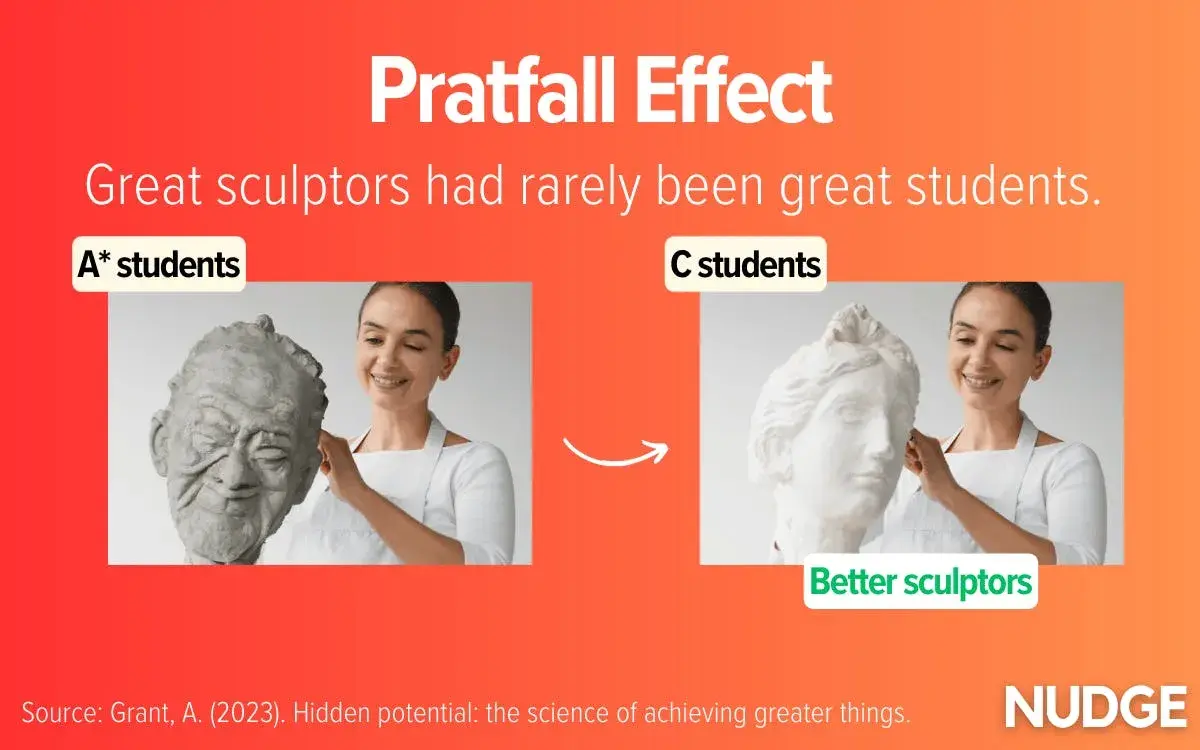
An equivalent pattern emerged when comparing the most influential architects in the United States.
Great architects had sometimes been excellent students: in most cases they finished their studies with an acceptable grade, that is, B or C.
Adam Grant writes that in their pursuit of flawless results, research suggests that perfectionists typically get 3 things wrong.
There is something powerful about embracing flaws. Recognizing that perfection is inconceivable and, alternatively, showing the imperfections that make you, you.
And the same is true for salespeople. Those who embrace their flaws generally tend to create better ads.
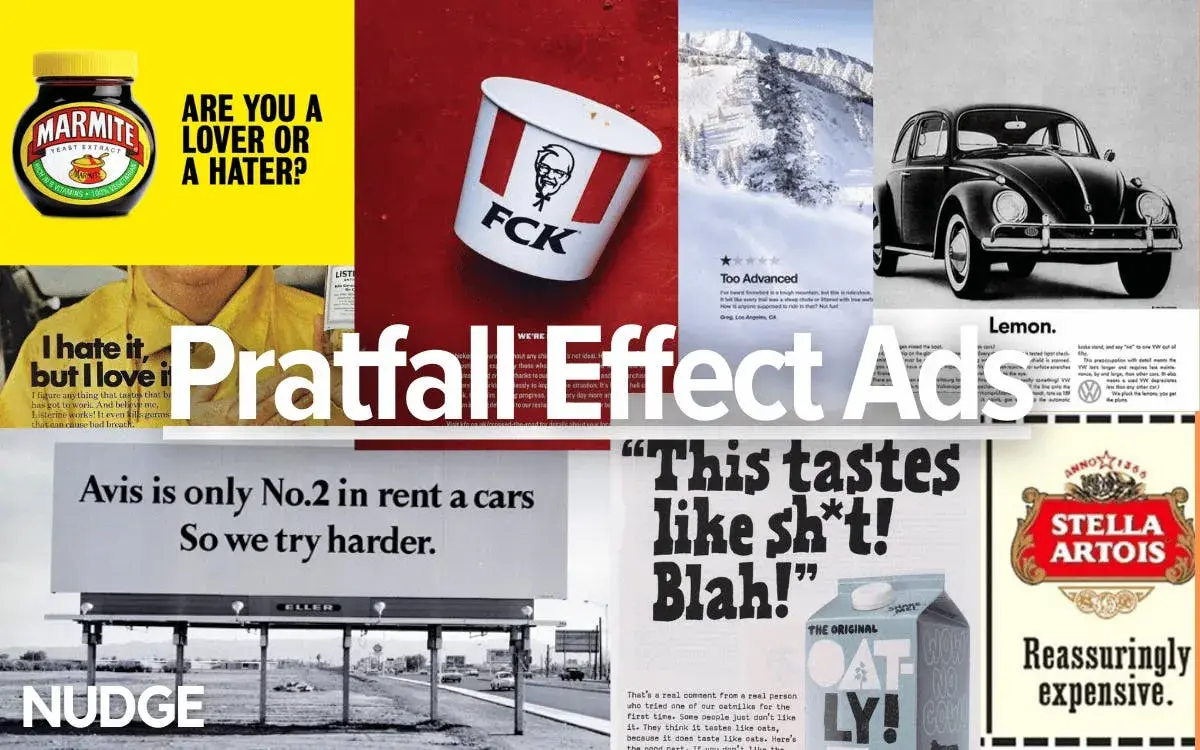
In psychology this is recognized as the free fall effect.
The “pratfall” effect was documented again in 1966 by Harvard psychologist Elliot Aronson. His study published that people rated skilled quiz contestants as more likable when they spilled coffee on each other. Simply put, skilled people are warmer in the tournament than relatively clumsy ones.
In Aronson’s words, “the free fall effect made the quiz contestant even more engaging, increasing his accessibility and making him seem even more human.”
Jo Sylvester conducted a follow-up study at Swansea Faculty. Her team of workers found that when candidates for the procedure posted a sensitive point they were considered more likable and therefore much more likely to be given the procedure.
Consumer psychologist Adam Ferrier, a former Nudge client, demonstrated this by asking a sample of 626 people a question about cookies.
Individuals were given two cookies that were identical except for one small difference. One cookie had a rough edge, while the other was completely blank.
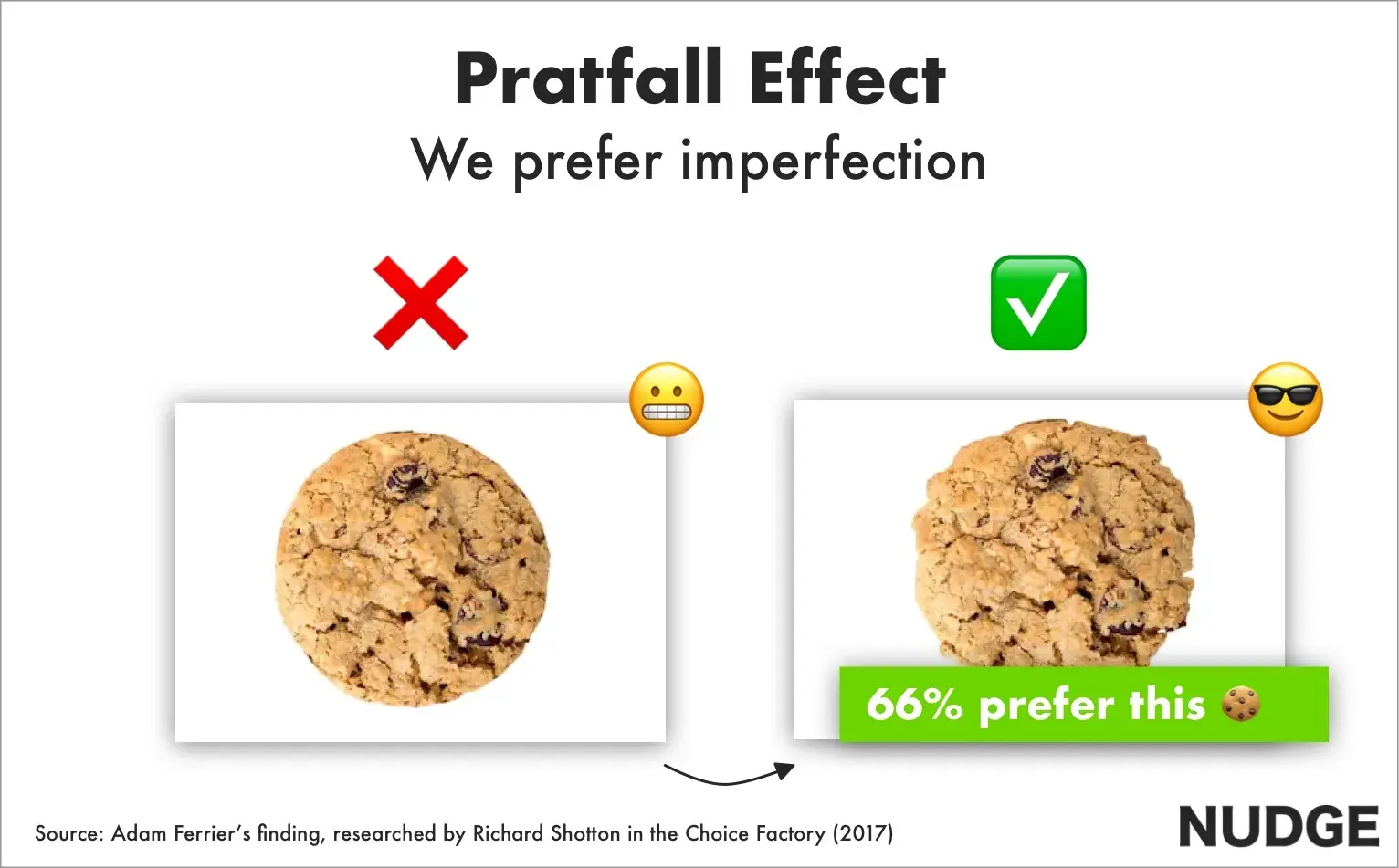
Alternatively, I’m not happy at all until I’ve tested those laws myself. So, I created two Reddit commercials to promote my podcast, Nudge.
The main announcement was a standard promotional text, highlighting all the positive aspects of taking note of my show. It was titled “5 explanation of why you should be aware of Nudge.”
The second one highlighted my flaws. Titled “5 reasons why you SHOULDN’T know about Nudge.”
I’ll be honest. I didn’t expect the “randomness” effect of the artwork. It was too literal. I was actually telling other people that they didn’t know about my show AND I was giving them the explanation why.
Good, the reasons I gave weren’t too damning and it was all written in a joking manner, but on the other hand I didn’t think it could get past the rule.
I spent about $110 total. Over 300,000 other people noticed the ad. And now I can’t believe the consequences.
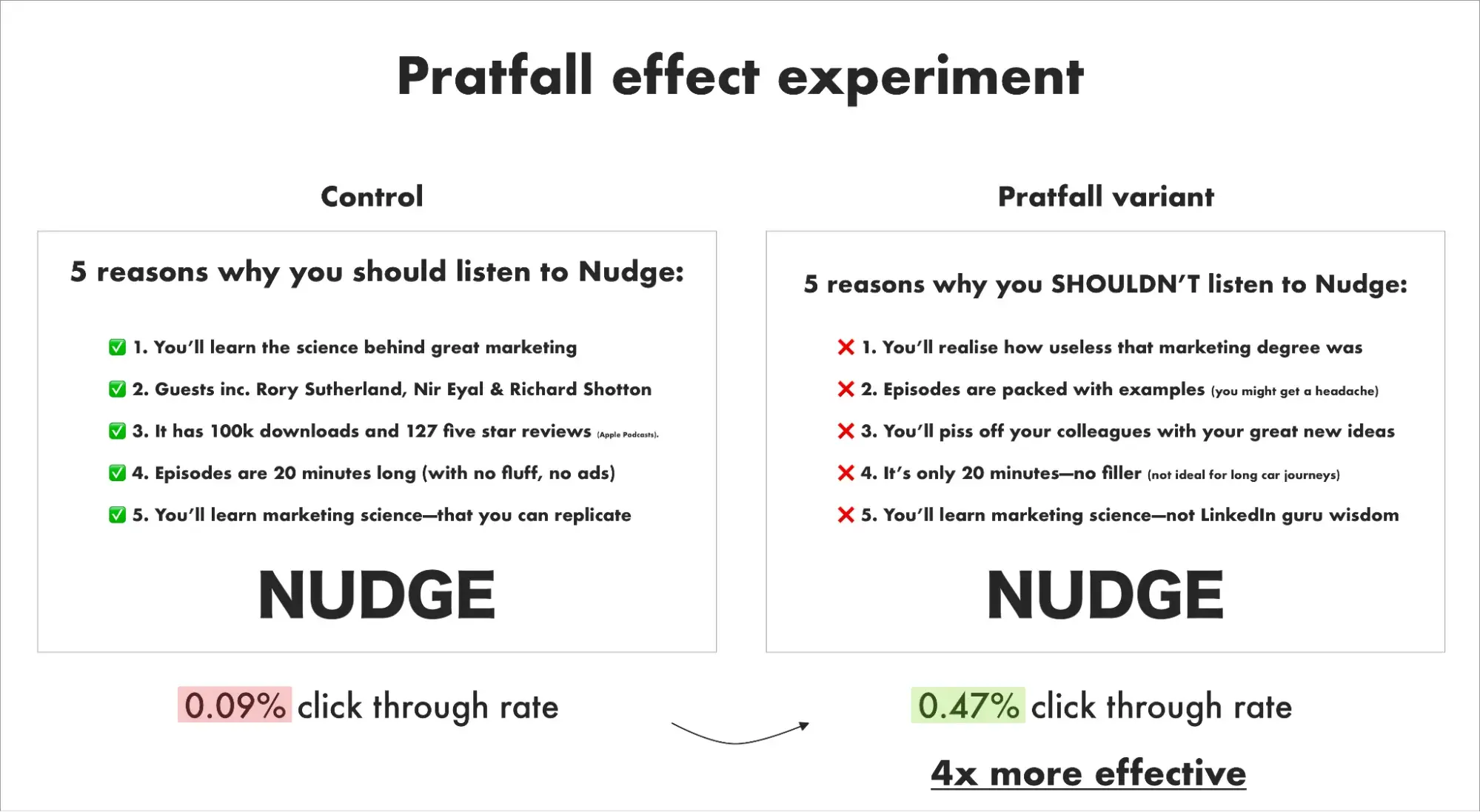
The click-through rate on the controller was 0.09%, while the click-through rate for the Pratfall ad was 0.47%. I got a 391% lift by telling other people they didn’t know about my show. Over 500 new listeners tuned into the show from that one ad. And it’s been my most successful Reddit control in the past.
And yet, this is something I doubt I would ever use in a corporate context. Your boss would never dare suggest that you’ll look at something that says you’ll never buy the product again. It’s so unusual to see companies embrace flaws in their promotion or show weaknesses because it kind of makes them feel too bad.
But it’s definitely better to be different.
It will be useful to use science to promote.
And accepting your flaws will be a good idea.
![]()
[ continue ]
wordpress Maintenance Plans | wordpress hosting
Learn more